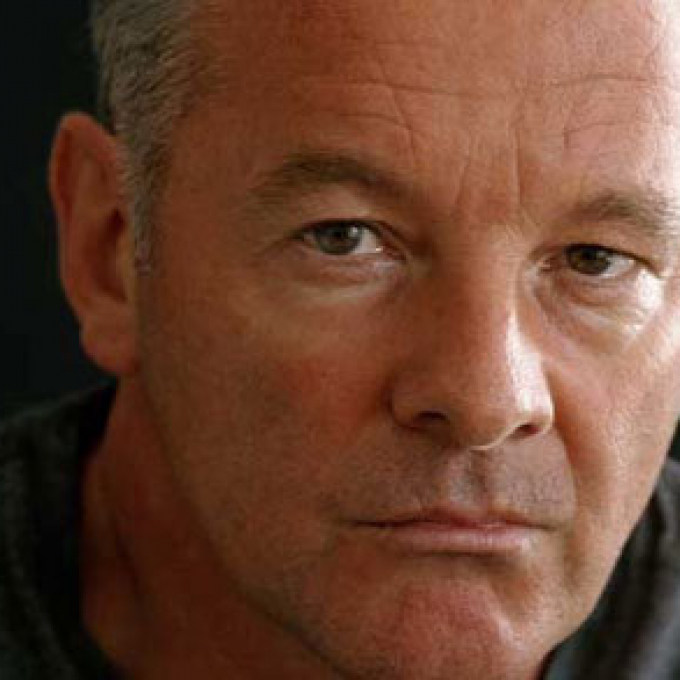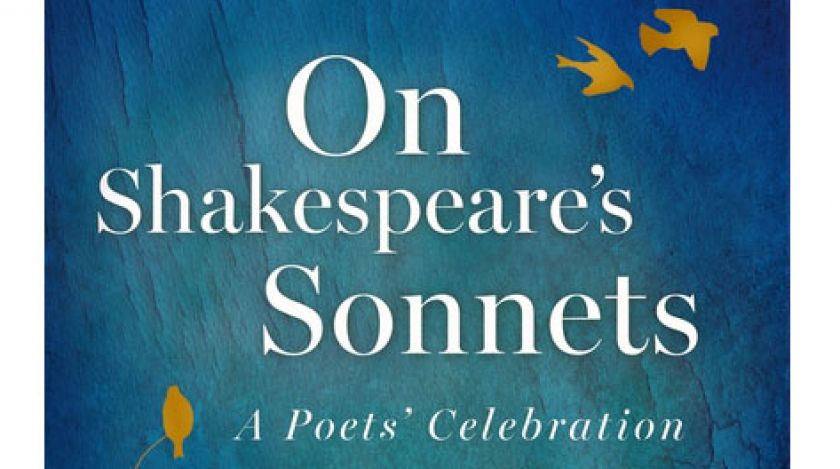
Biography
Robin Robertson is from the north-east coast of Scotland.
He is the author of four collections of poetry: A Painted Field (1997), winner of the 1997 Forward Poetry Prize (Best First Collection), the Aldeburgh Poetry Festival Prize and the Saltire Society Scottish First Book of the Year Award; Slow Air (2002); Swithering (2006), shortlisted for the 2005 T. S. Eliot Prize and winner of the 2006 Forward Poetry Prize (Best Poetry Collection of the Year); The Wrecking Light (2010), shortlisted for the 2010 Forward Poetry Prize (Best Poetry Collection of the Year), the 2010 Costa Poetry Award and the 2010 T.S. Eliot Prize; and Hill of Doors (2013), shortlisted for the 2013 T.S. Eliot Prize.
His translation of Euripides' Medea was published in 2008, and in 2009, his poem, 'At Roane Head', won the Forward Poetry Prize (Best Single Poem). His novel in verse, The Long Take (2018), was shortlisted for the Man Booker Prize, and won the Goldsmiths Prize for innovative fiction.
Robin Robertson is also the editor of Mortification: Writers’ Stories of their Public Shame (2003). In 2004, he was named by the Poetry Book Society as one of the 'Next Generation' poets, and received the E. M. Forster Award from the American Academy of Arts and Letters. He lives and works in London.
Critical perspective
Robin Robertson has won the Forward Poetry Prize in all three categories, most recently Best Single Poem in 2009 for ‘At Roane Head’. This is a darkly mysteriousstory of death, grief and transformation - an invented Scottish folk tale, actually. It tells of a woman and her four strange sons, ‘born blind’, ‘web-footed’, with ‘Beautiful faces, I’m told, / though blank as air’. The sons are murdered by her husband, as he is by her. ‘It’s said she goes out every night to lay / blankets on the graves to keep them warm. / It would put the heart across you, all that grief’. The narrator is revealed to be the sons’ father, and he himself as a ‘selkie’ (a mythical seal-human creature).
The poem’s dream-like atmosphere and tragic inevitability are fully in keeping with Robertson’s translation of Medea (2008) and the versions of tales from Ovid (rather more blood-soaked even than Ted Hughes’) that have appeared within each of his collections. Robertson has become one of the most admired Scottish poets of recent years, alongside John Burnside and Don Paterson, despite not publishing his first collection until past the age of 40. When he did so, his was already a mature and compelling voice. In persistently bringing out contemporary concerns from classical sources, Robertson has surely taken his model from Irish poets Michael Longley and Derek Mahon, and shows every sign of achieving a comparable poetic stature. What John Banville called the ‘plangent, bitter music’ of his work makes it at once emotionally intense, while David Harsent rightly identified that voice as ‘uncompromising in the way it deals with the insoluble and irresolvable in human relationships’ (Poetry Book Society Bulletin, 2006). His first volume, A Painted Field (1997), concludes with ‘Camera Obscura’, a lengthy sequence focusing on Edinburgh (‘this acropolis of light’) as viewed through the antique lens of a tourist attraction. It becomes clear, however, that the viewer is also searching for his own past and a lost lover: ‘A clutch / of backpackers blocks my view, then the sun opens / and you are there. Your hair, your hand. A touch’. Yet, as comes to be characteristic of Robertson, ‘what we came to find / is fading, leaching away’, and ‘our young ghosts’ are ‘in a time-lapse film / of flowers and rotting fruit’ (‘The Gift of Tantalus’). But perhaps of most significance is ‘The Flaying of Marsyas’, from Ovid’s Metamorphoses, with its unflinching version of the sadistic killing of a satyr by Apollo – the god of poetry, of course. The imagery has a horrifying palpability, ‘his birthday suit sloughed / the way a sodden overcoat is eased / off the shoulders and dumped’.Dramas of death and grief continue throughout Slow Air (2002). Suicidal painter Mark Rothko is the subject of ‘Maroon, Over Black on Red’, a passage from Dante’s Inferno inspires ‘The Woods of the Suicides’, while other poems memorialize Robertson’s father (who was a Church of Scotland minister): ‘Forgive me, I say, at his feet, / through a mouthful of nails’. The antidote to death is sexual relationships, yet this poet’s view of them tends to be fraught ‘with traps of desire’, and suspicious of ‘the mutinous flesh’ (‘Dream of the Huntress’). Nevertheless, ‘Wedding the Locksmith’s Daughter’ is well-crafted, almost jaunty sonnet full of erotic wordplay, ‘the clinch of words – the hidden couplings / in the cased machine’.Having worked as a commissioning editor in the publishing industry for many years, the idea for Mortification (2003), subtitled ‘Writers’ Stories of the Public Shame’, came to him while accompanying his authors to their book signings and readings. ‘What all or most writers want is communication with the public’, as he informed The New York Times (14 April, 2004), ‘but then there are those accidental, messy exchanges that occur’. This is a surprisingly entertaining book – if one is entertained by the embarrassments of distinguished writers, the vicissitudes of the Literary Life. We hear, for instance, about William Trevor reading to his driver and ‘two people who wandered in’; about Margaret Drabble being mistaken for Lynne Reid Banks, while Vicky Feaver and Glyn Maxwell ruefully describe the perils of reading poetry to classes of unruly schoolchildren.Images of the natural world abound in Robertson’s work, notably in Swithering (2006). These are beautiful or menacing, frequently both, as in lines depicting a mink’s face ‘slippery with yolk’, the ‘play of herring, a shoal / silvering open / the sheeted black skin of the sea’, while ‘The fox’s call is red / and ribboned’ (‘What the Horses See at Night’). Disturbed dreams and returning family presences also recur, sometimes together, as in a short evocative poem about ‘a garden run to seed’, a man sleepwalking out to a tool-shed: ‘In the corner of the shed my father is weeping / and I cannot help him because he is dead’ (‘Ghost of a Garden’). In ‘At Dawn’, another dream-poem, the speaker finds a ruined croft, its ‘earth floor seething with ants’ and ‘the lopped head of a roe deer, / its throat full of wire’. Once again there’s a powerful slice of Ovid, ‘The Death of Actaeon’, the divine punishment for voyeurism rendered in gory detail. Robertson’s introduction to his Medea informs us that Euripedes’ play ‘was first performed in the huge open-air theatre of Dionysus on the south slope of the Athenian acropolis’. This association with Dionysus is significant, because the god – and his intoxicated followers – appear in several of Robertson’s Ovid pieces as agents of anarchy and murder. And the revenge tragedy of Medea and her estranged husband Jason leads to her killing of their sons. Again, her barbaric acts are given a rationale (her humiliation at being abandoned by her husband for a beautiful younger woman) and the sanction of the gods. Medea herself claims that ‘Passion is the root of all our sin, / and all our suffering’, while the Chorus state: ‘grief is in the very seed of life’.The Wrecking Light (2010), shortlisted for the T.S. Eliot Prize, has been widely praised. Introducing the collection, Robertson noted how ‘the poems are in conversation’ with his previous books (P.B.S. Bulletin, Spring 2010). Thus ‘Album’, the opening poem about old family photographs, harks back to ‘Camera Obscura’ – the search for something fading (‘all this / Kodakcolor going to blue’), and for his past self. And in ‘Calling Home’, ‘I dreamt I was the needle in a compass / some orienteer bore through the forest with a spinning heart’. Ovid provides the basis of ‘Pentheus and Dionysus’ and ‘The Daughters of Minyas’. ‘Abandon’ is a beautiful valedictory poem, aptly set in Greece, full of images of sun-kissed nature and a beloved woman, ‘that sudden loosening / into beauty’, yet this is no lasting idyll: it concludes ‘as the sun was lost to us and the sky bruised, and the / stones grew cold as the shells on the beach at Naxos’. Dr Jules Smith, 2011


